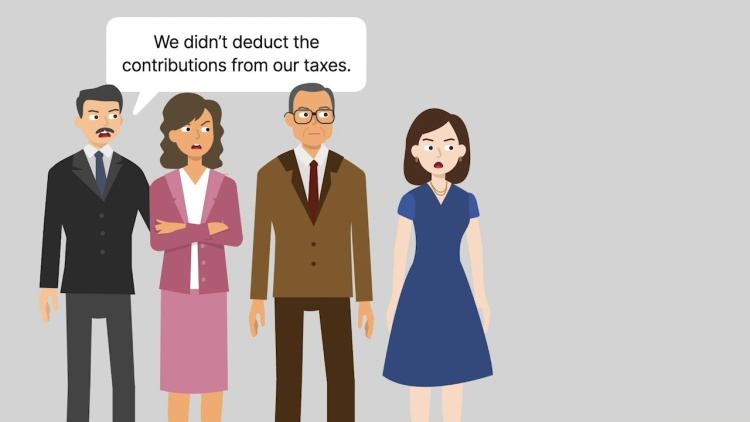Goodwin v. United States
United States Court of Appeals for the Eighth Circuit
67 F.3d 149 (1995)

- Written by Rich Walter, JD
Facts
Over a period of 25 years, Lloyd Goodwin (plaintiff), a church pastor, increased his church’s size from 25 members to almost 400 members. Goodwin and his wife (plaintiff) regularly received substantial payments from the church, which often essentially doubled the relatively low amount of Goodwin’s church salary. These substantial payments were financed by the anonymous donations of individual church members and were collected several times a year by church leaders, who were acting in accord with formal procedures they had established. The payments were donated on behalf of the entire church. Individual donors did not take charitable-tax deductions for their donations, and the Goodwins did not report the donations as taxable income. The commissioner of the Internal Revenue Service determined that the payments constituted income to the Goodwins, and issued a deficiency notice for the amount of those payments. Rather than contest the notice, the Goodwins paid taxes on the payments and then filed suit against the federal government (defendant) for a refund. At trial, the Goodwins and the government stipulated that the individual donors had acted voluntarily and saw their donations as gifts rather than as payments to retain Goodwin’s services. The district court nevertheless considered the donations as tied to Goodwin’s services, and ruled that the donations constituted taxable income. The Goodwins appealed.
Rule of Law
Issue
Holding and Reasoning (Loken, J.)
What to do next…
Here's why 906,000 law students have relied on our case briefs:
- Written by law professors and practitioners, not other law students. 47,100 briefs, keyed to 995 casebooks. Top-notch customer support.
- The right amount of information, includes the facts, issues, rule of law, holding and reasoning, and any concurrences and dissents.
- Access in your classes, works on your mobile and tablet. Massive library of related video lessons and high quality multiple-choice questions.
- Easy to use, uniform format for every case brief. Written in plain English, not in legalese. Our briefs summarize and simplify; they don’t just repeat the court’s language.





